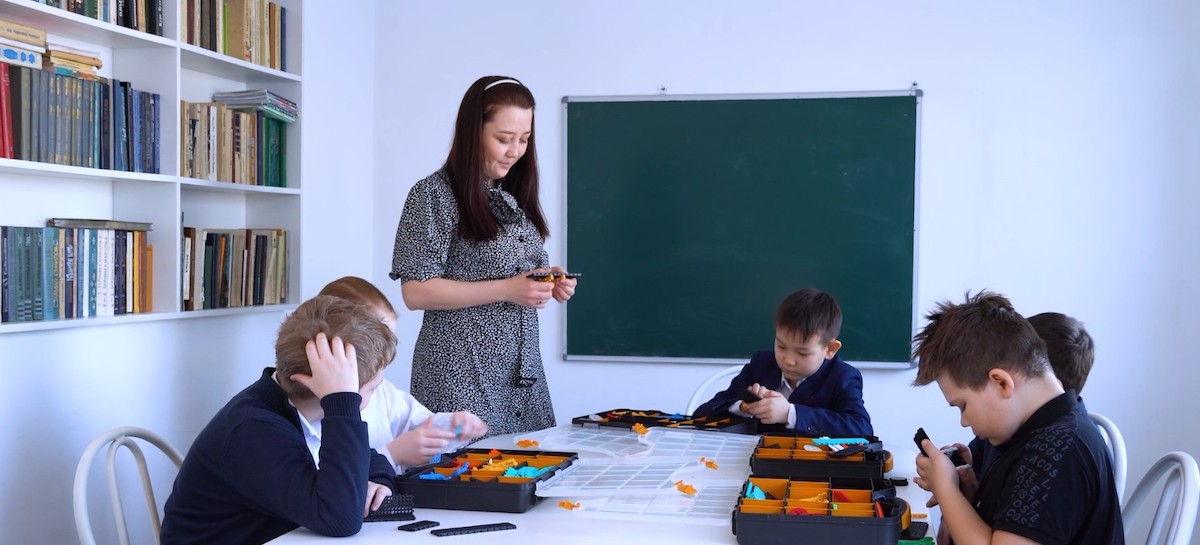
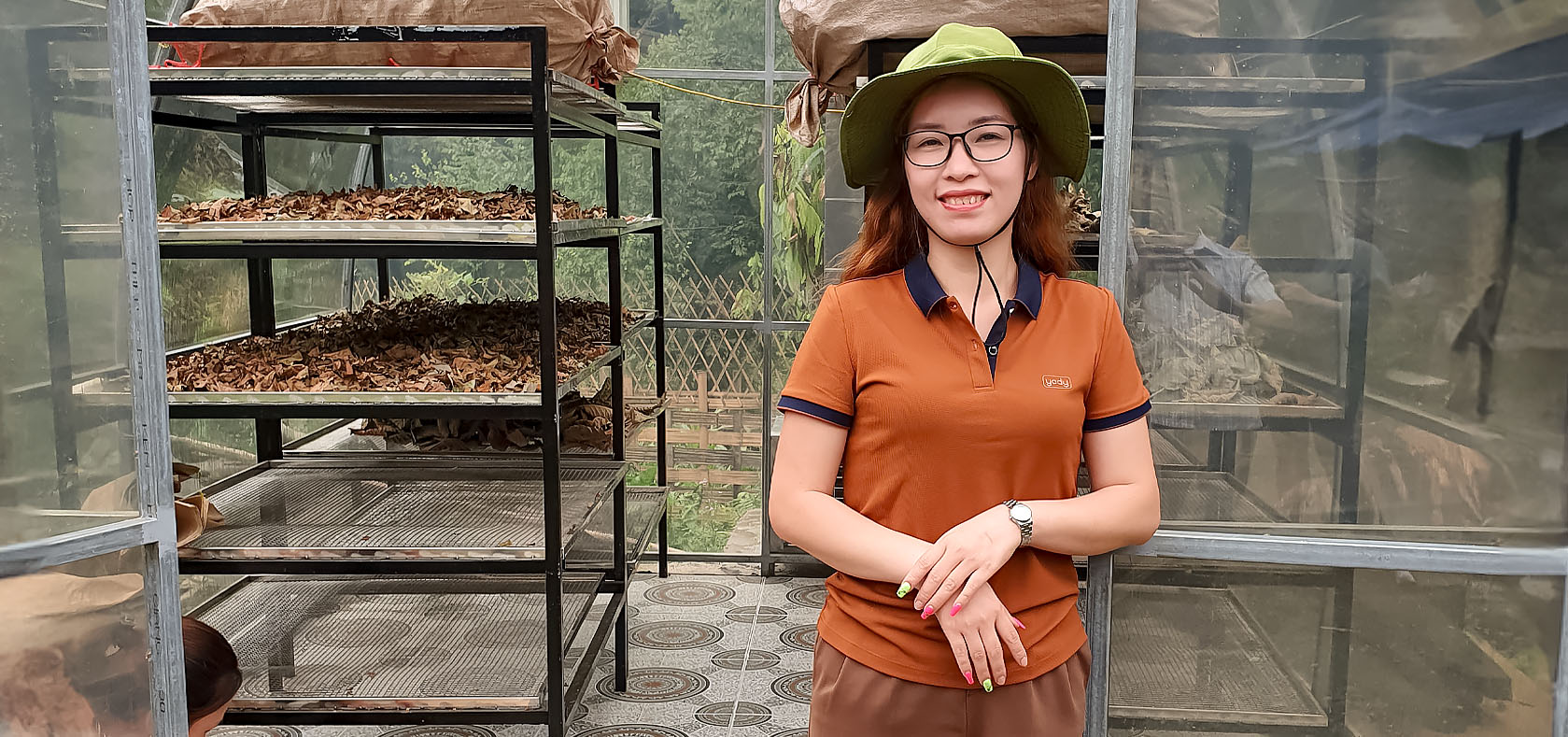
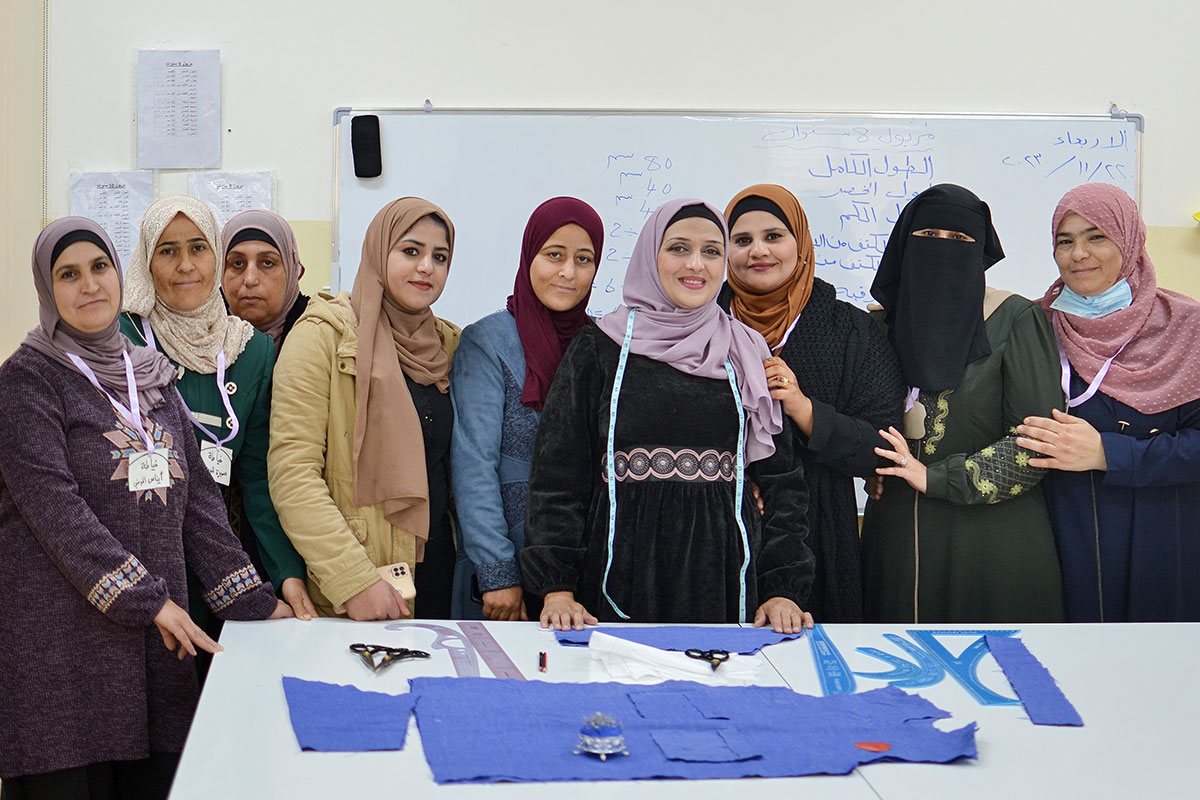
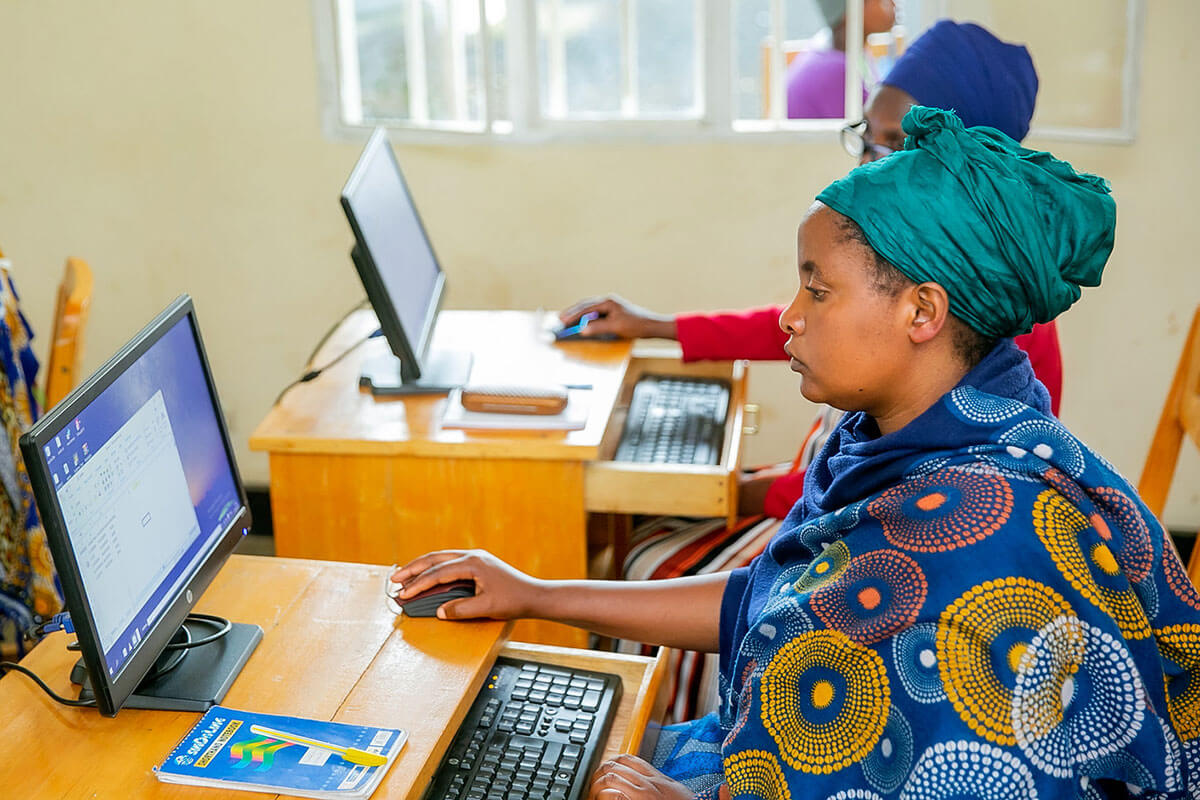
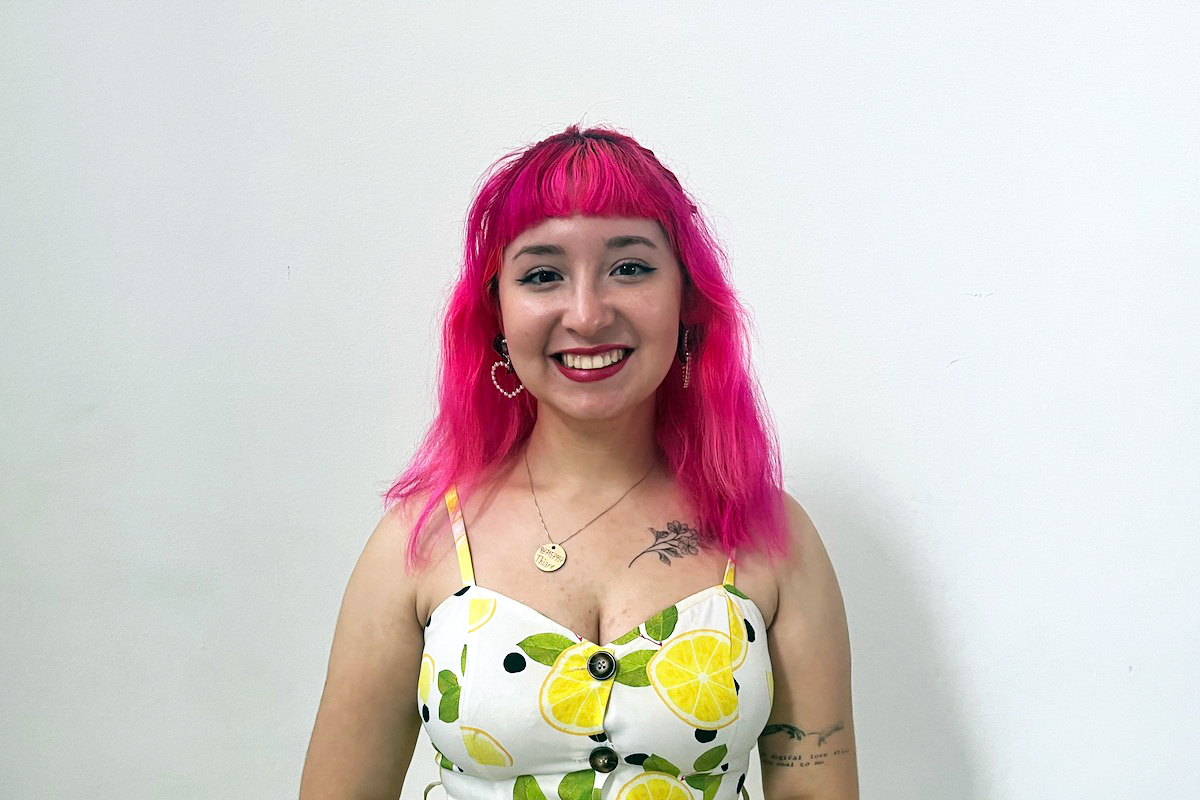
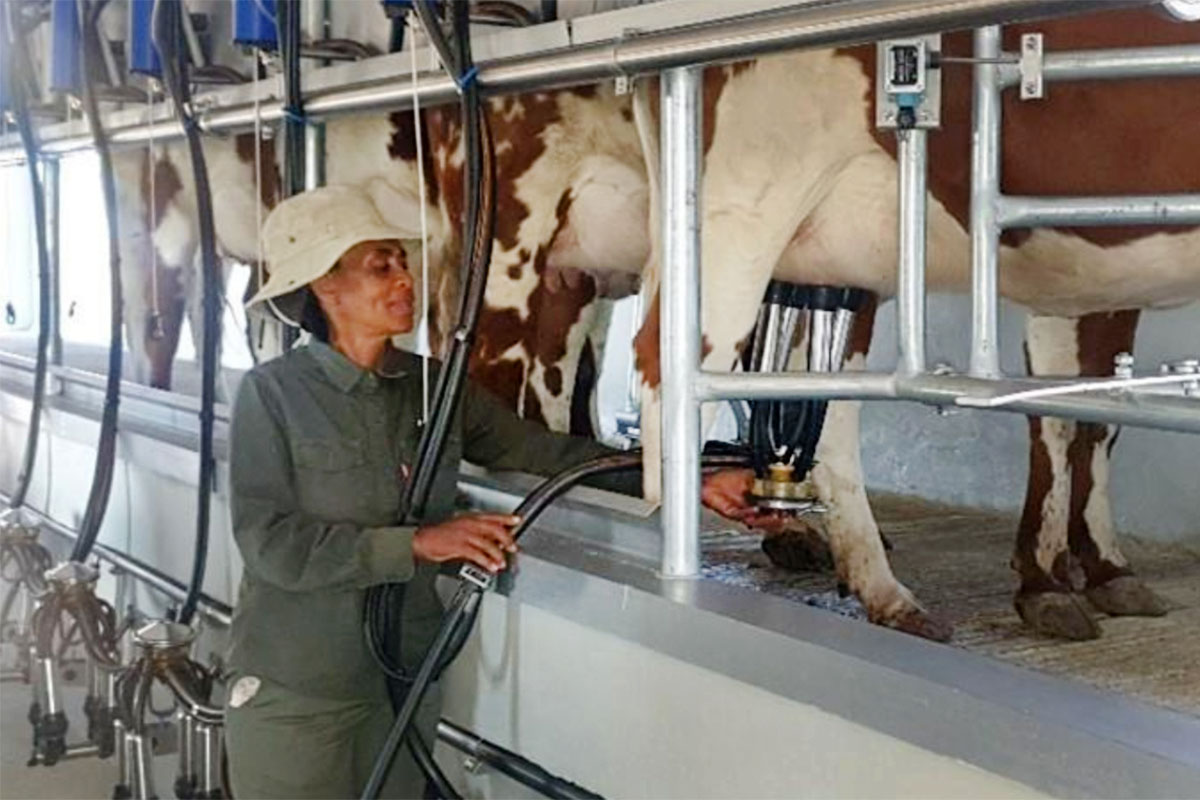
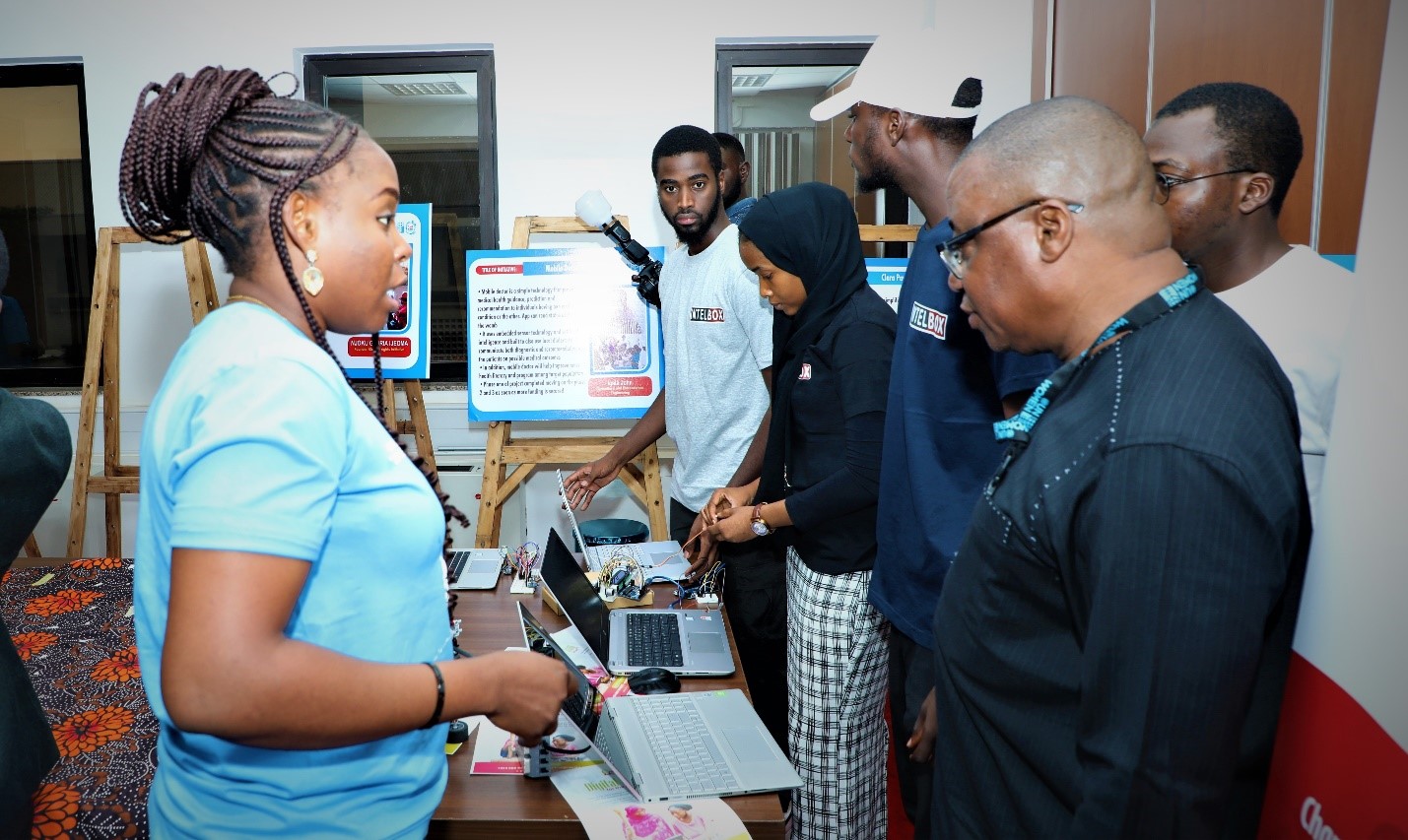
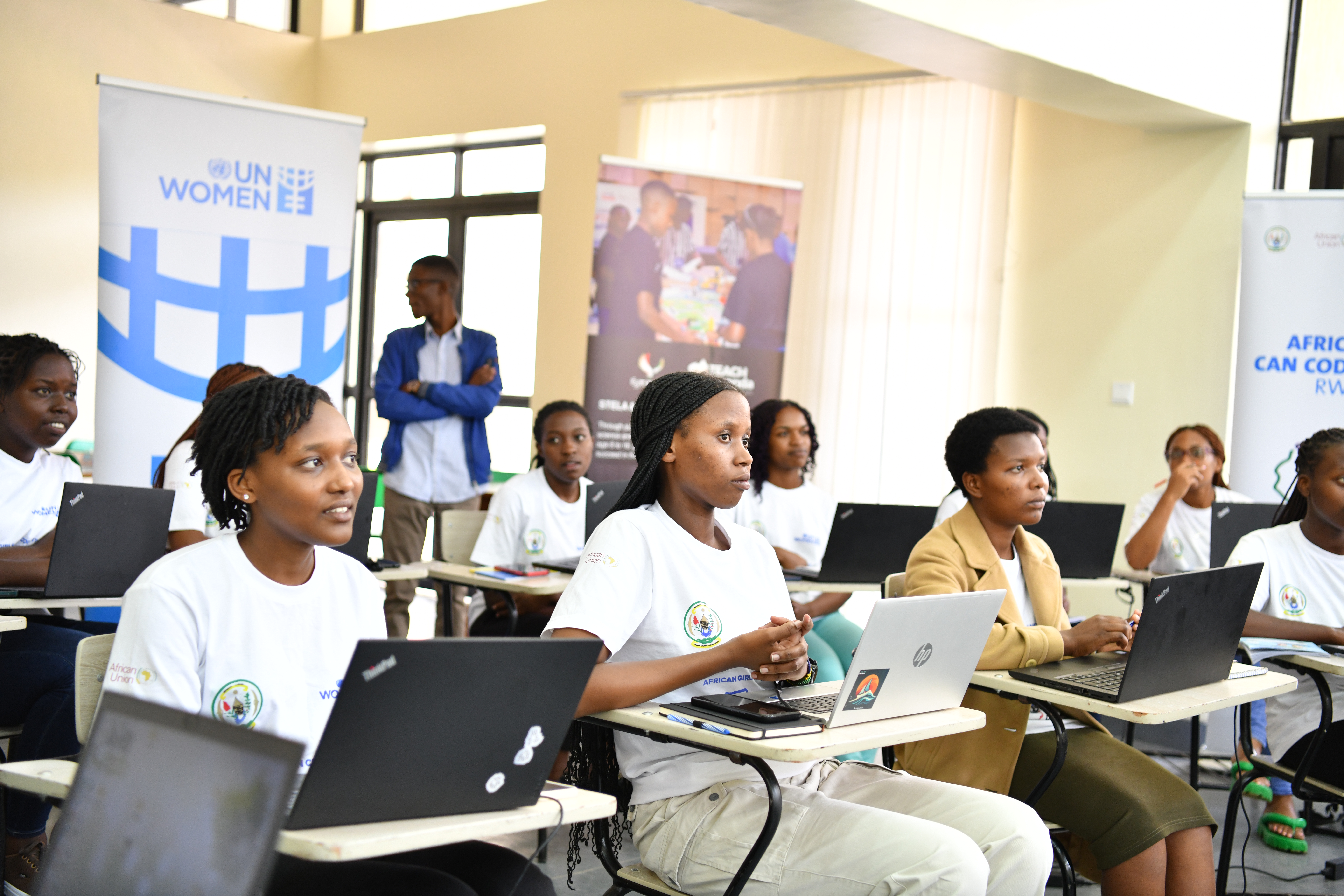
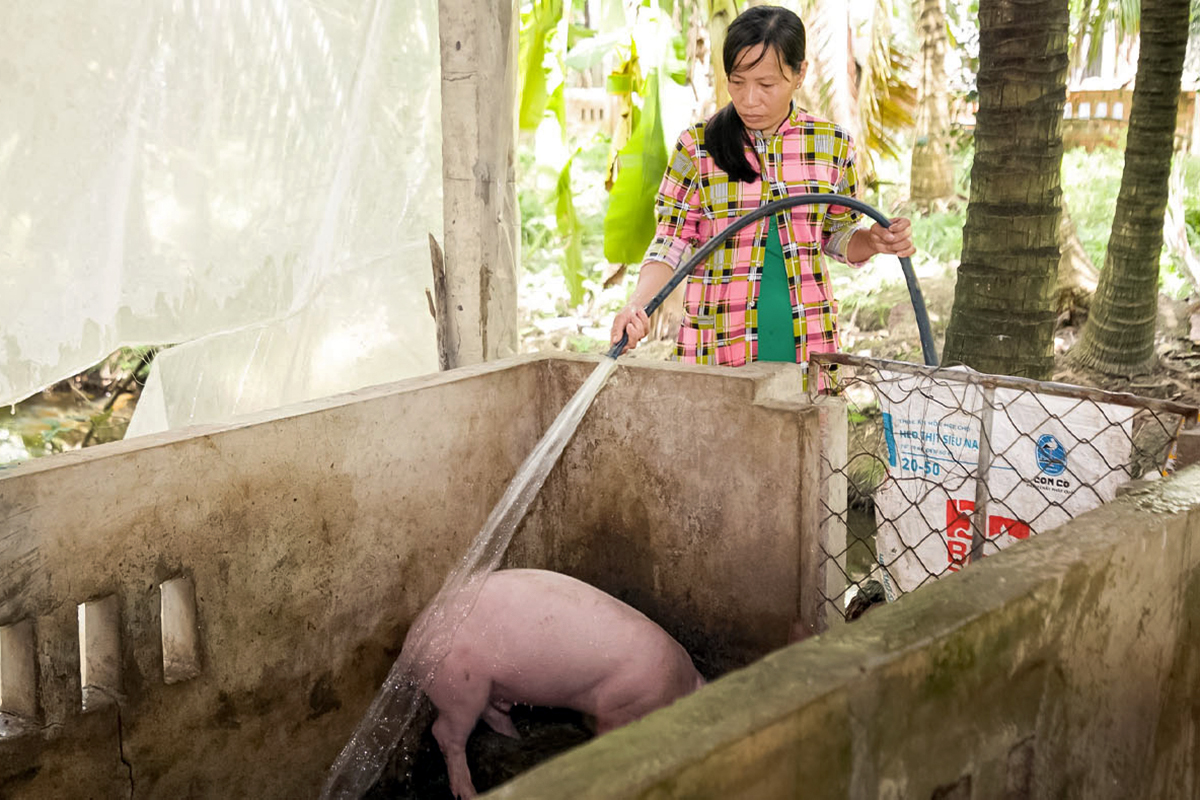
Supporting women’s entrepreneurship in Kazakhstan
Women’s economic empowerment is an investment with high returns. It improves the conditions of individual women and their families. It lays the groundwork for global gender equality, poverty eradication and inclusive economic growth. It brings fresh perspectives, ideas and energy to businesses and industries. And yet, around the world, women remain underrepresented in formal employment and unable to access the resources necessary to start their own businesses.
It was with this issue in mind that, in 2021, Kazakhstan pledged to open 17 Women’s Entrepreneurship Development Centers (WEDCs) in all provinces and major cities of the country—part of the country’s commitments to UN Women’s Generation Equality initiative through the Action Coalition on Economic Justice and Rights. In partnership with the National Chamber of Entrepreneurs and other international organizations, the Government of Kazakhstan and UN Women launched the WEDCs that same year, giving women across the country the opportunity to start or expand their businesses. Read more>
Women’s Renewable Energy Entrepreneurship Towards a Gender-Just Energy Transition in Viet Nam
Women have long been resourceful managers of energy in past traditional roles. Now there is a growing recognition of the crucial role women play in driving sustainable solutions for environmental challenges, including the adoption of renewable energy alternatives through small-scale businesses. However, there are many barriers to women’s active participation in the energy sector and as well as entrepreneurship in general
This holds true in Viet Nam as elsewhere – where women entrepreneurs face numerous obstacles, from limited access to financing, lack of information or negative societal pressure. This may explain why women-owned enterprises account for only 26.5 per cent of enterprises in the country, according to a UN report, with most of those small and micro-sized enterprises concentrated in service industries. Read More>
UN Women’s Oasis programme empowers Jordanian and Syrian women
Since 2012, UN Women has established 22 centres across Jordan to provide Syrian refugees and vulnerable Jordanian women with safe, inclusive spaces.
Known as the Oasis programme, these centres have provided crucial cash-for-work, skill development, and early childhood services to more than 30,000 people, including many women with disabilities. The initiative focuses on addressing gender barriers, promoting economic empowerment, and enhancing protection against gender-based violence. Read more>
E-commerce platform bridges the digital gender divide in Rwanda
During the COVID-19 pandemic, with many confined to their homes and businesses forced to shutter, digital systems became essential across all parts of life. This moment exposed a stark gender divide: many women-owned businesses operated offline and faced significant challenges when they suddenly needed to transition. But it also presented an opportunity to increase their engagement and participation within the e-commerce sector. Read more>
Revolutionizing STEM to bridge access gaps and uphold digital rights
Valentina Muñoz is a 20-year-old feminist activist and programmer from Chile. In 2021, she was selected by the UN Secretary-General to serve as an SDG Advocate—becoming the first Latin American woman ever appointed to the role. She is the co-founder of the Association of Young Women for Ideas (AMUJI Chile), an organization that aims to empower the next generation of women in STEM. “Girls are leading STEM in Latin America,” she says. “The fight against the digital gender gap is happening here, the protagonists are here”—and they deserve a place on the global stage. Read more>
UN programme instructs women on climate-resilient farming
Since 2019, UN Women has partnered with the Food and Agriculture Organization (FAO) of the United Nations on “Contributing to the Empowerment of Women in Africa through Climate-Smart Agriculture”, a programme to provide technical farming skills, recommendations on best business practices, and climate-conscious agriculture methods to tens of thousands of women farmers in sub-Saharan Africa. Read more>
UN Showcases Youth Tech and Innovation for Gender Equality and Women's Empowerment
As part of activities to commemorate International Women's Month, in March 2023, the UN Women Nigeria Country Office in collaboration with the office of the UN Resident Coordinator, organised a showcase event to promote the initiatives of young women and men in Nigeria who are using technology and digital innovation to advance gender equality, women's empowerment, and inclusion, which was in line with the International Women's Day theme for 2023 “DigitALL: Innovation and Technology for Gender Equality.” Read more>
Honing the limitless potential of young girls to bridge the gender digital divide in Rwanda through the African Girls Can Code Initiative
“This transformative experience has not only equipped us with technical skills but has opened our eyes to the immense potential and unreached talent that lies within the hearts of young African girls.” – Denyse Muhoza, a participant of the first AGCCI coding bootcamp in Rwanda.
Nestled in the altitudinous hills of Rulindo District lies the Integrated Polytechnic Regional Centre (IPRC) -Tumba, one of Rwanda’s leading Science, Technology, Engineering, and Mathematic (STEM) institutions. Halls and classrooms commonly filled with the determined footsteps and attention of young women and men eager to advance their studies in STEM, IPRC Tumba over a two-week period became a haven for 23 young female high school graduates, eager to transform interest into concrete action to bridge the gender digital divide in Rwanda. Read more>
Grants and training programmes empower women entrepreneurs in Cambodia and Viet Nam
Before the COVID-19 pandemic, 33-year-old Youn Seau was self-employed cleaning and repairing motorcycles in Keurt, a village in the southwestern Cambodian province of Koh Kong. But when her household was placed in lockdown in 2021, the family struggled to have enough food to eat; even after pandemic restrictions were lifted, Seau struggled to earn an adequate income.
In 2023, Seau was one of 27 women who took part in a two-day training session on financial literacy, small business management, and job-seeking skills run by UN Women. She not only learned how to manage her finances, but also gained hope for improving her situation. Read more>

Kazakhstan: Supporting women's entrepreneurship
Women’s economic empowerment is an investment with high returns. It improves the conditions of individual women and their families. It lays the groundwork for global gender equality, poverty eradication and inclusive economic growth. It brings fresh perspectives, ideas and energy to businesses and industries. And yet, around the world, women remain underrepresented in formal employment and unable to access the resources necessary to start their own businesses.
It was with this issue in mind that, in 2021, Kazakhstan pledged to open 17 Women’s Entrepreneurship Development Centers (WEDCs) in all provinces and major cities of the country—part of the country’s commitments to UN Women’s Generation Equality initiative through the Action Coalition on Economic Justice and Rights. In partnership with the National Chamber of Entrepreneurs and other international organizations, the Government of Kazakhstan and UN Women launched the WEDCs that same year, giving women across the country the opportunity to start or expand their businesses. Read more>

Viet Nam: Women’s renewable energy entrepreneurship
Women have long been resourceful managers of energy in past traditional roles. Now there is a growing recognition of the crucial role women play in driving sustainable solutions for environmental challenges, including the adoption of renewable energy alternatives through small-scale businesses. However, there are many barriers to women’s active participation in the energy sector and as well as entrepreneurship in general
This holds true in Viet Nam as elsewhere – where women entrepreneurs face numerous obstacles, from limited access to financing, lack of information or negative societal pressure. This may explain why women-owned enterprises account for only 26.5 per cent of enterprises in the country, according to a UN report, with most of those small and micro-sized enterprises concentrated in service industries. Read More>

Jordan: Oasis Programme
Since 2012, UN Women has established 22 centres across Jordan to provide Syrian refugees and vulnerable Jordanian women with safe, inclusive spaces.
Known as the Oasis programme, these centres have provided crucial cash-for-work, skill development, and early childhood services to more than 30,000 people, including many women with disabilities. The initiative focuses on addressing gender barriers, promoting economic empowerment, and enhancing protection against gender-based violence. Read more>

Rwanda: E-commerce bridges digital gender divide
During the COVID-19 pandemic, with many confined to their homes and businesses forced to shutter, digital systems became essential across all parts of life. This moment exposed a stark gender divide: many women-owned businesses operated offline and faced significant challenges when they suddenly needed to transition. But it also presented an opportunity to increase their engagement and participation within the e-commerce sector. Read more>

Chile: Revolutionizing STEM to bridge access gaps
Valentina Muñoz is a 20-year-old feminist activist and programmer from Chile. In 2021, she was selected by the UN Secretary-General to serve as an SDG Advocate—becoming the first Latin American woman ever appointed to the role. She is the co-founder of the Association of Young Women for Ideas (AMUJI Chile), an organization that aims to empower the next generation of women in STEM. “Girls are leading STEM in Latin America,” she says. “The fight against the digital gender gap is happening here, the protagonists are here”—and they deserve a place on the global stage. Read more>

Sub-Sahara Africa: Climate-resilient farming
Since 2019, UN Women has partnered with the Food and Agriculture Organization (FAO) of the United Nations on “Contributing to the Empowerment of Women in Africa through Climate-Smart Agriculture”, a programme to provide technical farming skills, recommendations on best business practices, and climate-conscious agriculture methods to tens of thousands of women farmers in sub-Saharan Africa. Read more>

Nigeria: Youth tech and innovation for gender equality
As part of activities to commemorate International Women's Month, in March 2023, the UN Women Nigeria Country Office in collaboration with the office of the UN Resident Coordinator, organised a showcase event to promote the initiatives of young women and men in Nigeria who are using technology and digital innovation to advance gender equality, women's empowerment, and inclusion, which was in line with the International Women's Day theme for 2023 “DigitALL: Innovation and Technology for Gender Equality.” Read more>

Rwanda: Bridging the gender digital divide
“This transformative experience has not only equipped us with technical skills but has opened our eyes to the immense potential and unreached talent that lies within the hearts of young African girls.” – Denyse Muhoza, a participant of the first AGCCI coding bootcamp in Rwanda.
Nestled in the altitudinous hills of Rulindo District lies the Integrated Polytechnic Regional Centre (IPRC) -Tumba, one of Rwanda’s leading Science, Technology, Engineering, and Mathematic (STEM) institutions. Halls and classrooms commonly filled with the determined footsteps and attention of young women and men eager to advance their studies in STEM, IPRC Tumba over a two-week period became a haven for 23 young female high school graduates, eager to transform interest into concrete action to bridge the gender digital divide in Rwanda. Read more>

Cambodia and Viet Nam: Women entrepreneurs
Before the COVID-19 pandemic, 33-year-old Youn Seau was self-employed cleaning and repairing motorcycles in Keurt, a village in the southwestern Cambodian province of Koh Kong. But when her household was placed in lockdown in 2021, the family struggled to have enough food to eat; even after pandemic restrictions were lifted, Seau struggled to earn an adequate income.
In 2023, Seau was one of 27 women who took part in a two-day training session on financial literacy, small business management, and job-seeking skills run by UN Women. She not only learned how to manage her finances, but also gained hope for improving her situation. Read more>

